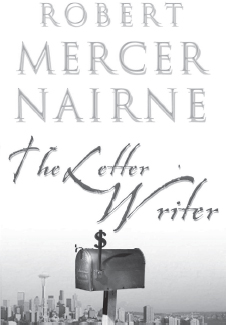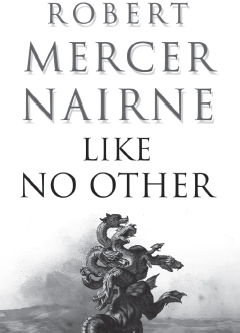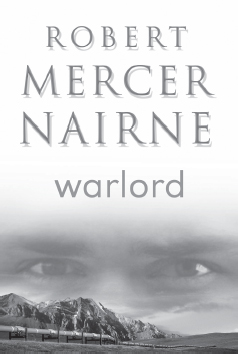The Storytellers (32 page)
Authors: Robert Mercer-Nairne

“It's on the menu,” Harvey pointed out.
“You are such a snob, Porter!” Pete growled.
The rest of the groom's table sat in silence as
The Sentinel
's boys and girl went at each other in their customary manner. In the past, it would have been George Gilder who called a halt, but today Lady
Gilder did with a firm change of subject.
“Do you think Mr Major will make a good Prime Minister?” she asked.
There were various half-hearted attempts from the Fourth Estate's junior members to express an intelligent opinion, but it was left to Lady Gilder's husband to capture the prevailing view.
“Having endured ten righteous years under Oliver Cromwell,” he recounted, “the British people were hungry for a return to easier ways. I suspect much the same applies today.”
When the main courses were brought â the choice had been between gilthead bream with palourde clams and under-blade fillet with Café de Paris snails, served with a Château Angélus Bordeaux for those who wanted it - Harvey and Frances changed places. He found it a relief to be out of the âpress room' for a while and could see that Frances had his boisterous colleagues quickly tamed.
By the time the blood orange sorbet with Tanqueray gin and freshly baked madeleines was being enjoyed, along with glasses of Chartreuse de Coutet Sauternes, which Frances's children appeared to be enjoying more than most, the gathering had slipped into a state of happy contentment. Even
The Sentinel
's habitual sparring partners were congratulating one another on their respective contributions to journalism.
It was with the coffee that Andrew's partner put in an appearance in his chef's fatigues to receive an enthusiastic round of applause and to chat. Harvey had been anxious to meet Joseph Preston ever since Andrew had told him about Quince. He watched as the young man engaged with his customers with charm and an easy authority.
“Mr Mudd, it's a pleasure to finally meet you,” he said after he had spoken to everyone else.
“Harvey, please. That was just the most superb meal. As Andrew probably told you I met your brother several times over these last years and your parents certainly once. How is John?”
“He's well and married now. He owns a bicycle shop in Solihull.”
“To Stacy?”
“Oh no. They split up in eighty-five. I don't know what became of her. I think she was too posh for John.”
“You've pretty much lost
your
accent.”
“That's London for you.”
“And you had another brother didn't you?”
“Yes, Billy: still drilling for oil. He's up in Alaska right now.”
“Married?”
“No. I don't think he wants to risk starting a family. He's seen too many changes.”
“And your parents?”
“They are both well and enjoying retirement. My father's still a union man of course.”
“They must be proud of you.”
“Bemused, more like!”
“Have they eaten here?”
“Once. They insisted on paying, so of course we had to doctor the bill rather substantially â and they still thought it was more than anyone should pay for a meal!”
“That's parents for you!”
“Right.”
“Back then there was a Jack Pugh with your brother, if I recall. Did he ever mention him?”
“Oh, a right poser that one, John said. My brother couldn't stand him. Teaching politics at a community college near Oxford, I think he said.”
Harvey smiled to himself: another generation of Marxist revolutionaries being readied for a moment that might never come.
“Well, I'm very pleased to have met you and don't think we could have enjoyed a meal more. Next time you speak to John, please tell him that Harvey Mudd sends his regards.”
* * *
After their guests had gone, the newlyweds walked home together, arm in arm. The pavements were all but deserted. Winter was back in control.
A young woman approached from the opposite direction, muffled-up and in a hurry to get out of the cold.
“Stacy?” Harvey said, but his question was hesitant and the woman walked on.
“What was that about?” his new wife challenged.
“Oh, just someone I thought I recognized.”
A red double-decker bus thundered by, embracing them momentarily in its slipstream while keeping warm those inside.
“Who'd have thought it?” Frances laughed. “Mrs Mudd!”
“With two Ds,” he joked.
A cascade of crystals hanging from an opulent chandelier within an antiques shop blazed out the refracted light its owner was paying for to entice absent customers.
“You know, Harvey,” Frances announced after they'd crossed an empty side street, “I sometimes think the present moment is all we ever have.”
“It certainly often seems that way,” he agreed, “but even moments must exist within stories.”
“Well, you write stories don't you?” she asserted.
“Yes,” Harvey admitted, “I suppose I do.”
END

Tracing the misfortunes of four Seattle families caught up in the dot-com bubble of the 1990s,
The Letter Writer
paints a striking picture of its time. Described by the
Seattle Post Intelligencer
as wickedly funny, its moral message remains apposite!

This roman-Ã -clef covers the opening stages of the second Iraq war. With understated, sardonic humour, the clash of ideas and opinions, at every level, is laid provocatively bare.
Mercer-Nairne shows skill at capturing the ethnic and economic outlook of his characters. In the case of political leaders one may easily recognize, he's justly lampooning them, especially the âmake the decision then find a reason' cart-before-the-horse methods of the Bush administration. This is not chauvinism on his part; he shows no favouritism to the Blair government. He is also not afraid to portray a decent, intelligent character favouring the war
.

Dedicated to the murdered Russian journalist, Anna Stepanovna Politkovskaya, Warlord follows Orla Kildare, DEMOS-TV's top new reporter as she investigates atrocities carried out by Russian soldiers in Chenchia, an imaginary country on Russia's southern border.
Warlord
describes the often unbridgeable gap between cultures and the hard choices those in small countries lodged next to large ones, such as Russia, must make. Yours and my insatiable thirst for oil is the catalyst. You might want to ponder who the warlord in the story is. The ones we think of as backward, with traditional ways â or the Russian President? Could the Warlord even be ourselves, hiding conveniently behind the men and women we elect?